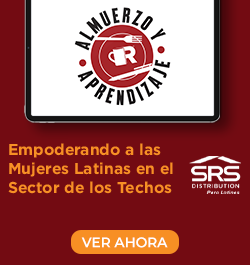The Future is Fungi

By Colin Sheehan, RCS Reporter.
Converting waste streams into value streams one mushroom at a time.
Joanne Rodriguez is the CEO of Mycocycle™, a company she founded two and a half years ago to address the problem of waste in the roofing industry. Through the process of bioremediation, Mycocycle diverts waste from landfills and allows for material reuse in manufacturing and other applications.
Prior to becoming a biopreneur, Joanne worked in the building products industry for 30 years, working with everything from below grade waterproofing products to roofing materials. Her last position was the Director of Sustainability for a large commercial roofing manufacturer.
“That’s when I discovered that we had a problem, that the waste that we produced or tore off of buildings was being sent to landfills or burned,” she said. “From an environmental perspective and a sustainability perspective it wasn’t good.”
It has become clear that one of the largest societal challenges of the 21st century is the efficient use and reuse of resources. When a roof is removed, a lot of trash is created. Not just any trash, but construction and demolition debris. As an industry, roofing has yet to develop a means to divert the approximately 11 million tons of asphalt shingle roofing waste dumped into landfills every year. As for all construction and demolition waste, the EPA estimates the total related waste stream in the U.S. at an annual 230 to 530 million tons. Within that estimate, roofing compromises 20% and is one of the top four highest contributors of construction demolition material waste in the U.S., mostly because there are so few options for diversion or recovery.
That is until Mycocycle.
The roofing industry and other asphalt and chemical manufacturers have yet to achieve zero-waste because the products manufactured are contaminated with toxic constituents and heavy hydrocarbons. Mycocycle remediates toxic constituents through a process that is both cost-effective and sustainable. After debris is remediated, a renewable, fire and water-resistant byproduct is formed which can be manufactured into new products.
“Mushrooms have been cleaning up messes for a really long time without our help,” said Joanne. “We could start to solve this issue related to building material waste with mushrooms, who love heavy hydrocarbons.”
Heavy hydrocarbons are the basis of many building materials made in the roofing industry and are the main reason why many materials cannot be recycled or reused in a cost-effective way. On top of this challenge, the need for alternative ways to remove or recovery demolition debris is increasingly urgent as landfill space continues to dwindle, causing many municipalities to raise the tipping fees for asphalt products into landfills or ban them entirely.
Seeing the gravity of this problem, Joanne left her last position in the roofing industry in 2017 to find and develop possible solutions that could help roofing companies remove their waste in a cost effective and sustainable manner. It was during this time that she attended a permaculture design class at Oregon State University and learned the superpowers of fungi as nature’s premier cleaners.
Joanne quickly realized she was onto something big and began researching and connecting with mycologists, namely Peter McCoy, who was interested in taking on Joanne’s idea: to treat roofing material waste using mycelium (mushrooms).
“That’s how it all started,” said Joanne. “In October of 2018, Mycocycle was born.”
Mycocycle will be 3 in October and has been named a finalist in multiple categories to FastCompany’s “World Changing Ideas Awards” Issue in 2020, as well as being recognized as a notable entrepreneur in the Forbes Next 1000 for 2021.
“What those recognitions prompted was a discussion from manufacturers outside of the roofing industry,” said Joanne. “In one of those discussions, I'm in a development deal with them now a year later and with a full-scale implementation happening in the first half of 2022. All of this has led the way to get the word out and to develop these relationships.”
Roofing is not the only industry that needs to change how it deals with waste, nor is it the only industry on Mycocycle’s radar. Mycocycle is also directing energy to the flooring industry, taking on waste streams of MDF and particle board. They also have the intention to go after gypsum products, manufactured wood products and much more.
“Outside of construction and demolition, we see opportunities in cannabis waste, paper pulp waste, there's been some opportunities mycologically to break down some plastics,” said Joanne. "There's an infinite number of applications. It's just a matter of time and resources.”
Joanne is hoping that more and more industries will embrace alternative methods of neutralizing toxins and begin to realize how they can convert their waste streams into value streams by re-using products in manufacturing.
“I'm not saying that our industry is a bad industry,” said Joanne. “I'm saying by nature, this problem is inherent to how we manufacture. We're never going to stop using petroleum derivatives in building products because they're great, but we can definitely change and be proactive about what we do with those waste streams after we've manufactured them.”
Mycocycle is in talks with multiple roofing companies about deploying their technology. While they haven’t scaled just yet, Joanne expects that within the next three to four months their process will be mobilized with at least one manufacturer to treat their waste stream within the industry.
“I'm excited. I'm a gardener and there’s a saying about when you first plant a seed,” said Joanne. “The first year sleeps the second year it creeps and the third year it thrives. We are, metaphorically, that garden.”
Learn more about Mycocycle’s patent-pending process by visiting their website.
Stay up to date with the latest roofing industry news when you sign up for the RCS Week in Roofing e-news.





















Comments
Leave a Reply
Have an account? Login to leave a comment!
Sign In